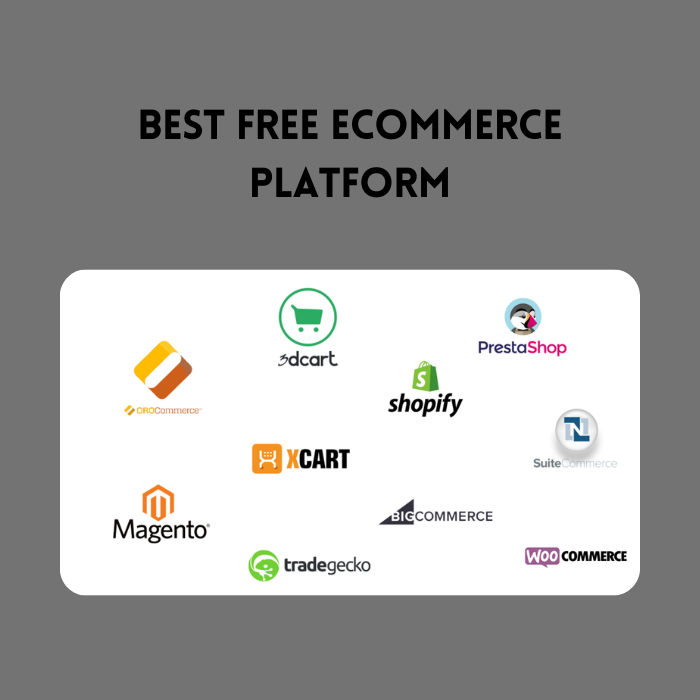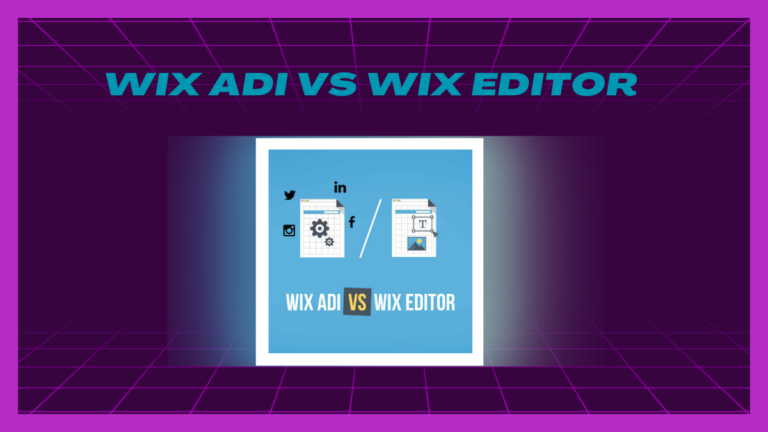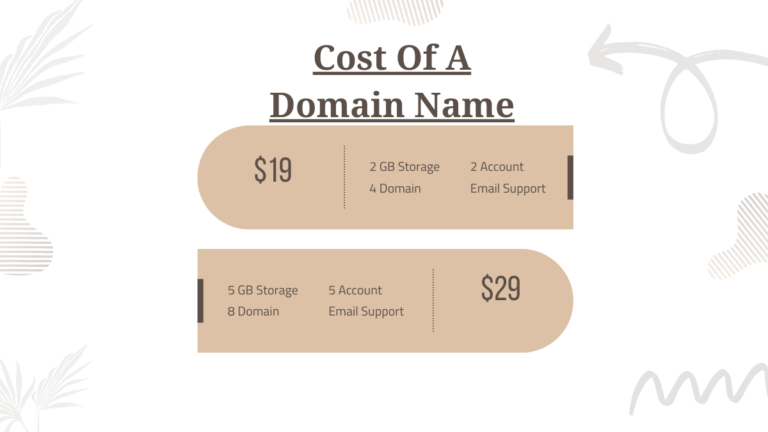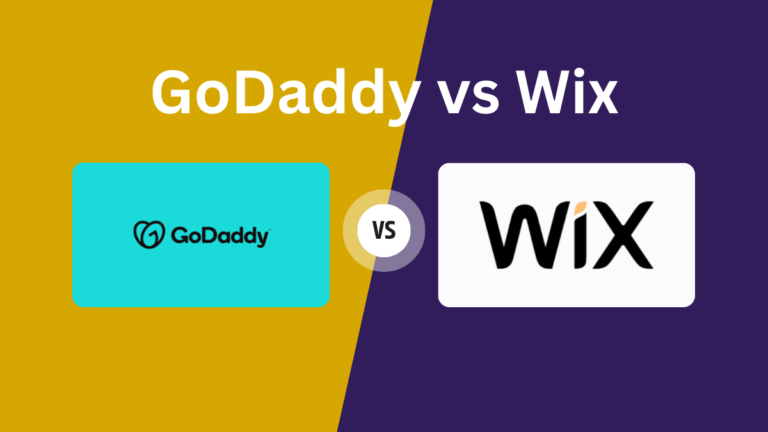Best Free Ecommerce Platform
Are you ready to take your business online and start selling products or services? Well, look no further because we have the ultimate guide for you! In this blog post, we will unveil the best free ecommerce platforms available in the market.
Yes, that’s right – FREE! Whether you’re a small business owner, a budding entrepreneur, or just someone looking to dip their toes into the world of online sales, these platforms are here to make your life easier. So sit back, relax and get ready to discover how you can build an incredible online store without breaking the bank.
Table of Contents
What is an Ecommerce Platform?
An ecommerce platform is a software that helps businesses sell products online. There are many different types of ecommerce platforms, but the most common ones are Shopify, Volusion, and BigCommerce.
Shopify is the most popular ecommerce platform in the world. It’s free to use and has a lot of features, including:
- A built-in shopping cart.
- A pre-built theme selection.
- Integrated payment processing.
- A wide variety of plugins and add-ons available.
Volusion is another popular ecommerce platform. It’s free to use but has fewer features than Shopify. It’s also more expensive than Shopify. Some of its features include:
- The ability to create custom themes.
- The ability to create custom designs.
- The ability to import your own inventory from other stores.
Types of Ecommerce Platforms
There are many different types of Ecommerce platforms available to businesses of all sizes. The following is a brief overview of each type of platform:
Open Source Platforms: These platforms are built by the community and are freely available to download. They tend to have low fees, but lack some features offered by more expensive platforms. Some notable open source Ecommerce platforms include Magento and WordPress.
These platforms are built by the community and are freely available to download. They tend to have low fees, but lack some features offered by more expensive platforms. Some notable open source Ecommerce platforms include Magento and WordPress.
Premium Ecommerce Platforms: These platforms typically have higher fees, more features, and better support teams than open source platforms. They may be difficult for businesses with limited resources to set up and manage, but they offer a level of sophistication that can be valuable for larger businesses. Some notable premium Ecommerce platforms include Shopify and BigCommerce.
These platforms typically have higher fees, more features, and better support teams than open source platforms. They may be difficult for businesses with limited resources to set up and manage, but they offer a level of sophistication that can be valuable for larger businesses. Some notable premium Ecommerce platforms include Shopify and BigCommerce.
Mobile App-Based Platforms: These platforms allow businesses to conduct transactions through their mobile apps rather than website browsers or applications. This type of platform is growing in popularity because it allows customers access purchases from their smartphones wherever they are. Some notable mobile app-based Ecommerce platforms include Shopify and Amazon Appstore.
These platforms allow businesses to conduct transactions through their mobile apps rather than website browsers or applications. This type of platform is growing in popularity because it allows customers access purchases from their smartphones wherever they are. Some notable mobile app-based Ecommerce platforms include Shopify and Amazon Appstore.
Web Browsers: These platforms allow businesses to conduct transactions through their website browsers. They tend to be less expensive than other types of platforms, but they lack some features offered by more expensive platforms. Some notable web browser-based Ecommerce platforms include Magento and WordPress.
Benefits of using an Ecommerce Platform
There are plenty of benefits to using an ecommerce platform, including faster turnaround times, more organized sales data, and the ability to track customer behavior and interactions. Here are five of the most important:
- Faster turnaround times: With an ecommerce platform, you can speed up your product launches by easily managing product listings, shipping addresses, and orders. You’ll also have access to automated order processing and fulfillment services that can reduce your wait time for customers’ orders to arrive.
- More organized sales data: An ecommerce platform will help you keep track of your sales data in a centralized location so you can identify trends and make better business decisions. This information also makes it easier to optimize your marketing campaigns and improve customer retention rates.
- Ability to track customer behavior and interactions: Using an ecommerce platform allows you to automatically collect user data such as purchase history, feedback ratings, and contact information. This information can then be used to improve your website’s design or marketing efforts based on what your customers want or need.
- Improved customer service: Having all of your customer data in one place makes it easy to respond quickly to any questions or complaints that may arise during transactions. Additionally, ecommerce platforms often offer tools for tracking customer demographics and behavioral patterns, which can help you target specific types of customers with more effective marketing campaigns.
- Increased profits: By using an ecommerce platform, you can streamline your operations and make better use of the resources you already have. This can result in increased profits for both you and your business partners.
Pros and Cons of Each Ecommerce Platform
There are a few different ecommerce platforms out there that can help you start and grow your online business. Each has its own pros and cons, so it’s important to weigh them carefully before making a decision:
Pros of Shopify:
Shopify is a well-known platform with a large user base. This means that it’s likely to be very easy to set up and get started, which is great for new businesses. It also has a wide range of features and tools available, so you can create an effective online store without having to spend too much time tweaking settings.
Cons of Shopify:
One downside of Shopify is that it doesn’t offer as many customization options as some other platforms. This can make it difficult to create an standout store if you want something more unique than the average retailer offers. Additionally, Shopify charges relatively high fees for features such as custom domains and SSL security, which may be prohibitive for some small businesses.
Pros of Etsy:
Etsy is known for being user-friendly and easy to use, which makes it great for beginners who aren’t familiar with online stores or formatting. It also has a wide range of products available, so you can find exactly what you need no matter what your niche might be.
Cons of Etsy:
One downside of Etsy is that it doesn’t offer as much flexibility as some other platforms when it comes to pricing and design. Additionally, Etsy can be more expensive than some other ecommerce platforms, particularly if you’re looking to expand your business significantly.

Comparison of the Top 5 Ecommerce Platforms
Ecommerce platforms are becoming more and more popular, with many different providers available to choose from. To make things easier for you, we’ve put together a list of the top five ecommerce platforms:
- Shopify: Shopify is arguably the most popular ecommerce platform in the world, with millions of users. It offers a wide range of features, including custom themes and marketing tools. It also has a strong community support network, so you can get help if you need it.
- Magento: Magento is another well-known ecommerce platform, with over 20 million installations worldwide. Like Shopify, it offers a wide range of features and customization options. However, Magento also has an advantage in terms of functionality – it’s often considered to be more powerful than Shopify.
- BigCommerce: BigCommerce is one of the newer ecommerce platforms on our list, but it’s quickly gaining popularity thanks to its easy-to-use interface and comprehensive feature set. BigCommerce is also backed by Amazon Web Services (AWS), so you can be sure that it’s reliable and scalable.
- Woocommerce: Woocommerce is a great choice if you want an intuitive platform that’s simple to use – even beginners can get up and running quickly. With a range of features that rivals those offered by the more popular platforms, Woocommerce is ideal for smaller businesses.
Conclusion
As a small business owner, you know that online sales are critical to your success. But which ecommerce platform is the best for your business? Depending on your needs, there are many platforms available for free or low-cost use.
By using one of these platforms, you can start selling products and services online without spending a fortune on website design or marketing efforts.






